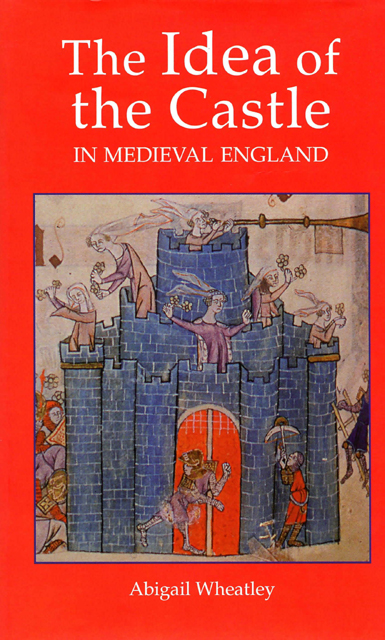Two - The Urban Castle
Published online by Cambridge University Press: 21 March 2023
Summary
And also this present boke is necessarye to alle cytezens & habytaunts in townes and castellis/ for they shal see, How somtyme troye the graunte/ and many other places stronge and inexpugnable, have ben be-sieged sharpely & assayled, And also coragyously and valyauntly defended/ and the sayd boke is att this present tyme moche necesarye/ for to enstructe smale and grete, for everyche in his ryght/ to kepe and defende
In the previous chapter I showed that the medieval understanding of castle words allowed for a wide degree of overlap between private fortifications and fortified communal and urban enclosures. I used linguistic arguments to explore this link mainly at the level of verbal usage and understanding. However, in this chapter I concentrate on the ways in which the relationship between castle and town was explored symbolically, in medieval literature and art, and in the spatial and political juxtaposition of urban castles and town defences.
The quotation cited above, from Caxton’s preface to his Eneydos, serves as introduction to a number of key ideas about the relationship between the medieval castle and town. Phrases such as Wyclif’s ‘litil tounes . . . wallid’ invoke the affinities between castles and towns. However, Caxton gives a broader and more nuanced appreciation of this relationship. The subjectmatter of the text – the siege of Troy – is given an exemplary function ‘to enstructe’, directed towards dwellers in both ‘townes and castellis’. Both communal and private defences are thus united in their joint duty ‘to kepe and defend’; but this collective responsibility is defined by social divisions. Two groups, respectively of the city and of the castle, are contrasted socially as ‘citizens and habytaunts’ and as ‘smale and grete’. Their common purpose is expressed through carefully differentiated hierarchies of person.
Yet Troy is ultimately an example of failure as well as of heroic joint endeavour. It was sacked by the Greeks through the treachery of one of its own citizens, in a war brought about by the selfish lust of a member of its aristocracy. The knowledge of this ultimate failure lies behind the exhortations of Caxton’s preface, adding poignancy to the exemplary united efforts in its defence. Troy might, then, be interpreted as a negative exemplar: a proof of the ultimate incompatibility of the interests of commons and elite and of the futility of struggling for the common good.
- Type
- Chapter
- Information
- The Idea of the Castle in Medieval England , pp. 44 - 77Publisher: Boydell & BrewerPrint publication year: 2004



